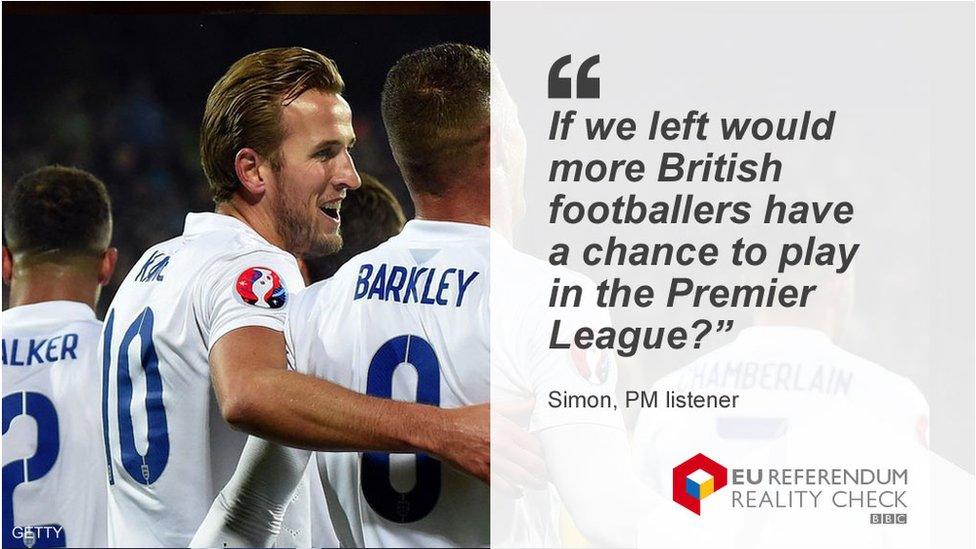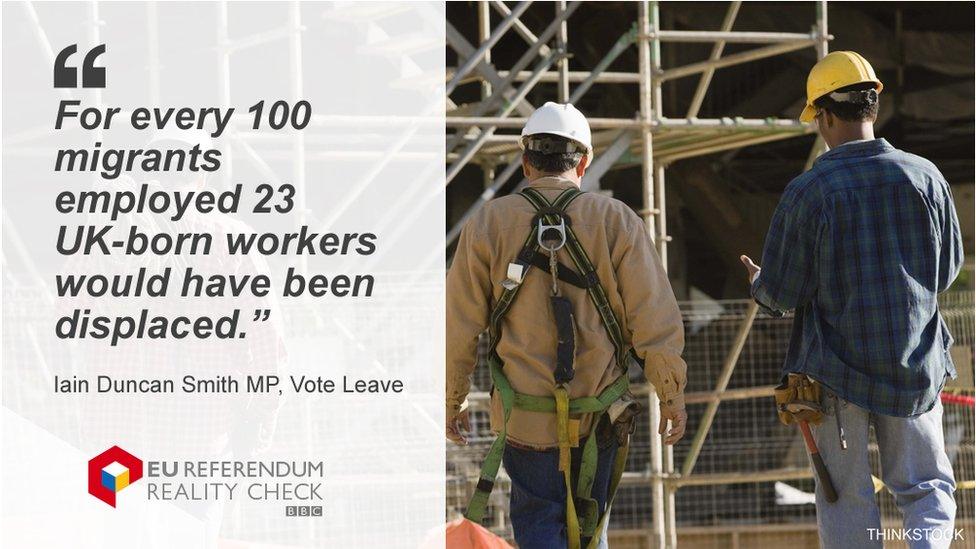Reality Check: How might Brexit affect the Premier League?
- Published

The question: Simon asks BBC Radio 4's PM programme: "Would withdrawal from the EU mean that more British footballers had a chance to play in the Premier League, and would those European-sourced players no longer have free access to appear in English teams?"
Reality Check verdict: This depends on whether home clubs decide to bring in more top level international players or give opportunities to British footballers.
At the moment, EU players have the freedom to participate in British football, while non-EU players have to have a work permit in order to play in the Premier League.
We don't know what deal would be cut in the event of Brexit, but we can look at the situation for non-EU players at the moment as an indication of the direction things might take.
For non-EU players to be granted a work permit, they must demonstrate they are an international player of "the highest calibre."
This means they must have played in 75% of a Fifa top-50 ranked national team's matches over the previous two years.
The Home Office made it harder for non-EU players to get work visas last year, a move which the FA (Football Association) hoped would give more opportunities for home-grown talent to rise to the top.
The BBC's Chris Morris looks at how leaving the EU might impact the Premier League
FA chairman Greg Dyke said at the time that if the new system had been applied over the previous five years, there would have been 42 fewer non-European players in the Premier and Football Leagues.
If this kind of reduction was replicated for EU players following a British exit, this would leave vacancies on British teams.
Indeed, the BBC's Matt Slater has suggested only 23 of the 180 non-British EU players currently playing in the Championship would get work permits.
In theory, those 157 remaining spots could be filled by British players.
But clubs would still be able to recruit the best players from around the world.
A 2014 FA report suggested while Spanish, French and German players featured heavily in Champions League games, Brazilian players were also a major source of competition, with more than twice as many as English players appearing in any Champions League group stage games in 2013.
Vacancies left by "non-elite" EU players could be filled by Brits, or they could be filled or by other, more elite international players.
Whether home clubs would focus their attentions on attracting the top international players who would remain eligible for work permits, or on giving opportunities to British footballers following a Brexit is likely to depend on factors unrelated to the EU - such as the quality of coaching and the strength of the British talent pool.



- Published22 February 2016

- Attribution
- Published31 March 2016
- Published10 May 2016
